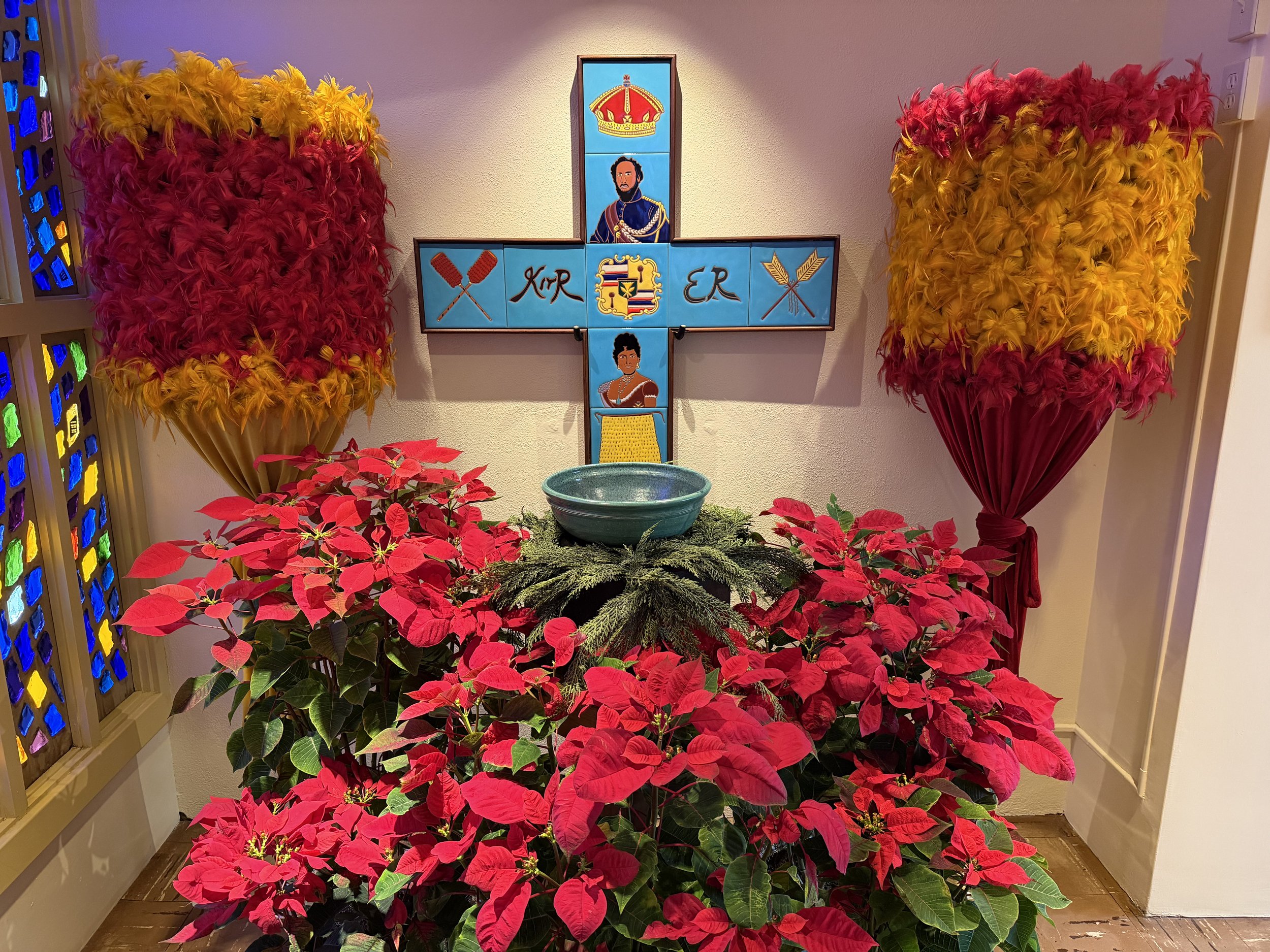From the Oblate: All shall be well
/8 May 2022
Here is a vision shown by the goodness of God to a devout woman, and her name is Julian, who is a recluse at Norwich and still alive, AD 1413, in which vision are very many words of comfort, greatly moving for all those who desire to be Christ’s lovers.
So begins the Revelations of Divine Love, by Julian of Norwich, whose feast day is today.
Julian’s name is not a household word. Not like the big names in monasticism. She’s not a Benedict or Francis, or a Clare. She had been largely forgotten until a manuscript of her writings resurfaced in the 19th century. But she had been there all along in her quiet, unassuming way, just waiting to be discovered.
Julian is a pretty mysterious and shadowy figure. We’re not even sure that her name is really Julian. We call her that because there are parish records attaching a hermit like her to the church of St. Julian in Norwich. She lived in the late 14th and early 15th centuries, and when she was 30 years old, had a series of 16 visions or “showings” as she called them over the course of a night and a day. She was so moved by those showings that she spent the rest of her life meditating on them and eventually wrote them down in her book, Revelations of Divine Love, which was the first book written by a woman in English. She also became an anchorite–someone similar to a hermit who lived the rest of her life sealed into a room attached to her parish church, with one window into the sanctuary where she could see the mass being offered, and one to the street outside where she could offer advice to passers-by.
For someone living in such a violent and merciless age, Julian’s spirituality was surprisingly optimistic and upbeat. She constantly reassures her readers of God’s loving and merciful nature, not his wrathful and vengeful side, and she matter-of-factly refers to Jesus with feminine imagery, calling him our loving mother–something that might actually get you canceled on certain platforms today. She is often remembered for her vision of the universe as a hazelnut in God’s hand, tiny and fragile in comparison to the infinitely merciful God who made it and who continues to take an active part in it, loving it and protecting it. One of her signature phrases is, “all shall be well, and all shall be well, and all manner of thing shall be well.”
All shall be well. In our 21st century cynicism it’s tempting to dismiss this as wishful thinking, naive and unrealistic, coming from someone who has maybe led a sheltered and pampered life. For anyone in the 14th century, however, life was lived on the edge in a way that not many of us could handle. Medieval England was definitely not a democracy, and most people lived lives of hard physical labor and early death without modern medicine or any of the comforts we take for granted. But Julian was able to see through the sufferings of her age and discern that the true nature of God is love.
I first became acquainted with the monastic Order of Julian in the early 2000s when a man passed through this parish on his way to try his vocation to be a regular member of the Order. At that time I had just finished my first decade of teaching, and was chronically sleep-deprived and stressed. I didn’t realize it at the time but I was looking for something to help me make sense of that experience and to give it a bigger meaning beyond just making it to the end of each day, only to repeat the same thing the following day. Something to sanctify it and reassure me of God’s will working through it. It turns out the Order had been there all along in its quiet, unassuming way, just waiting to be discovered.
While awareness of Julian has resurfaced in the modern era, several devotional societies and religious orders have been founded with her as patroness. The Order of Julian of Norwich in Wisconsin represents the monastic expression of her spirituality in the Episcopal Church, and consists of cloistered nuns who live in a monastery as well as orders of oblates and associates who live out her spirituality in the world at-large. Upon discovering the Order, I was instantly drawn to its gentle expression of her spirituality and took oblate vows in 2007. As oblates, we take the same vows as regular professed members–stability, conversion of life, and obedience–but we live into them through our service in our parishes and our secular vocations. It’s definitely not a luxurious life as our oblate vows are built on the traditional monastic vows of poverty, chastity, and obedience, but it is nourishing and sustaining in a way that a life lived just for the things of this world could never be. It’s not a life of grand and dramatic experiences and mountaintop highs, but of quietly and patiently waiting, living each day as a gift and blessing; recognizing the luminous presence of God in the still, quiet spaces that the rest of the world overlooks as it rushes by; and dedicating all that we are and that we have, as imperfect and flawed as they are, in gratitude to the service of God.
The gospel appointed for Julian’s feast comes from John and describes Jesus talking with the Samaritan woman at the well at Sychar. Jesus reveals his true nature to her although she initially doesn’t understand it. As it would have been the case for any of us, it was just too unbelievable and amazing for her to comprehend. Like the woman at the well who eventually got it (at least part of it) and shares the news joyfully with her neighbors, Julian shares the good news with us, not with great fanfare or drama, but in her quiet and unassuming way, waiting until the time is right for her still, small voice to be heard.
When Julian assures us that all shall be well, she doesn’t mean that God will give us whatever we want or that things will always go our way, or that we’ll live charmed lives without hardships and sorrows. What I’m convinced she means is that God, in his infinite goodness and with a surprising twist that no one will have ever expected, will somehow turn all of our bad decisions, our frustrations, our anger, our irritation, our loneliness, our hypocrisy, and our selfishness into something good and holy and sacred. When he does that, Julian will be there, in her quiet and unassuming way, waiting to remind us that she said so all along.
Let us pray.
O Lord Jesus Christ, guide and sanctify all whom you call to follow you by stability, conversion of life, and obedience in the spirit of our Mother Saint Julian; protect us from danger and want, and grant that by our prayer and service we may enrich your Church, and by our life and worship we may glorify your Name; for you reign with the Father and the Holy Spirit, one God, now and for ever. Amen.







